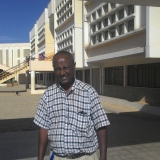Few studies have examined the dynamic aspect of the effect of natural resource collection on child education. This paper looks into the effect of resource collection on child education using panel data collected in four rounds from rural Ethiopia.
We model resource work participation and child literacy as a joint decision. Mundlak’s approach is employed in order to exploit the panel nature of the data. Unlike other related studies, we separately analyzed the effect of collection of water and fuel on child education. We find that, in general, natural resource scarcity, in addition to its direct impact on households, negatively contributes to child education by increasing the work burden on children in rural Ethiopia. In particular, children’s participation in fetching water is found to be one of the most important factors that reduce children’s ability to read and write. In addition to the effect of resource collection on children’s literacy, this study also examined the role of other factors, such as household characteristics, child characteristics and access to schools. The policy implications of the findings are also presented.


